What Are The Long-Term Effects of Pain?

It's no secret that chronic pain can take a toll on your daily life. But what are the long-term effects of living with pain?
We now know that pain that outlasts the typical injury healing time can have effects on us physically, emotionally, and can result in changes in the nervous system. The physical and emotional effects of long-term pain are more obvious, but most people don’t know about the effects pain has on the nervous system.
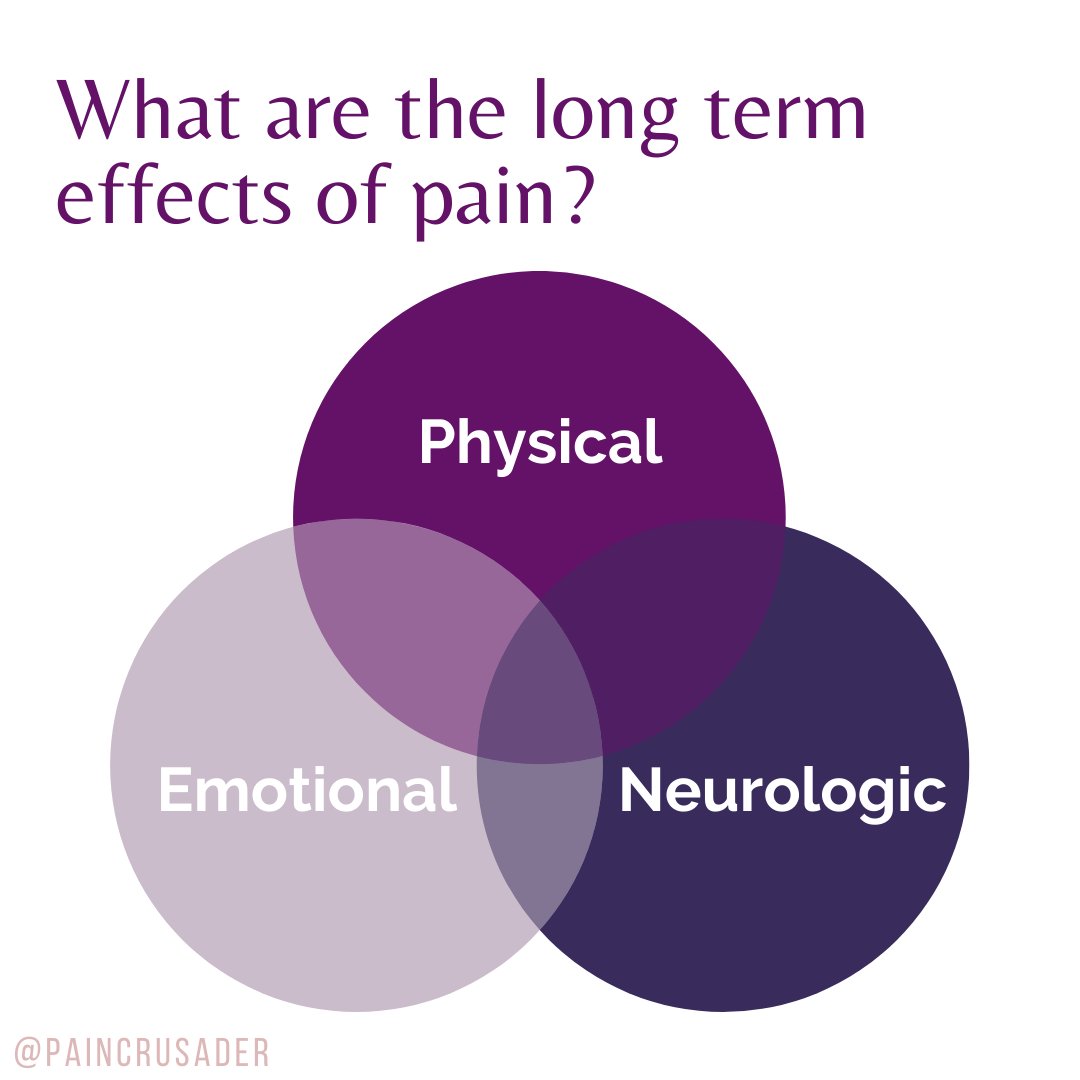
In this article, we will discuss the various effects that long term pain has on our bodies in each category.
First, chronic pain can result in physical, or physiologic, changes in the body.
Chronic pain results in physical changes in the body. Some of the more obvious physical effects of pain include fatigue, weakness, decreased range of motion and flexibility, joint stiffness, and muscle imbalances.
People with chronic pain also often have areas of increased muscle tone or tension that lead to areas of soreness, cranky nerves, and weakness of the smaller muscles that stabilize the joints.
Some of the less obvious effects of pain are those that are more systemic, effecting the digestive, reproductive, and immune systems.
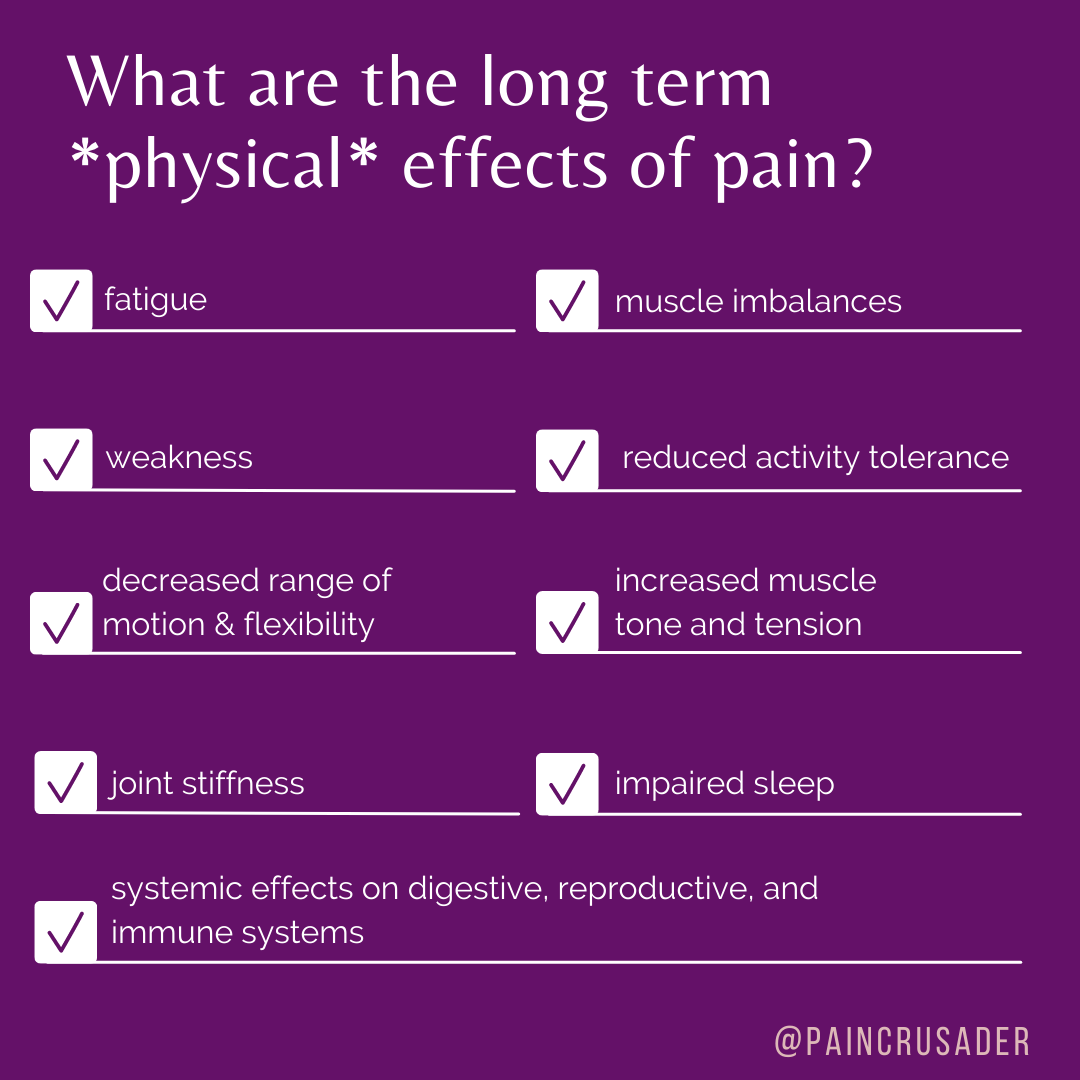
All these physical effects of pain cause difficulty with sleep and decreased activity tolerance, making it difficult to participate in daily activities and the things that you enjoy.
Which leads me to my next topic, the emotional effects of long-term pain.
Second, pain can influence us emotionally.
Often times medical providers like to blame the cause of pain on anxiety or depression, minimizing the cause of the pain and saying "it's just anxiety". But although mental health and stress can influence pain, it is not the cause of the pain.
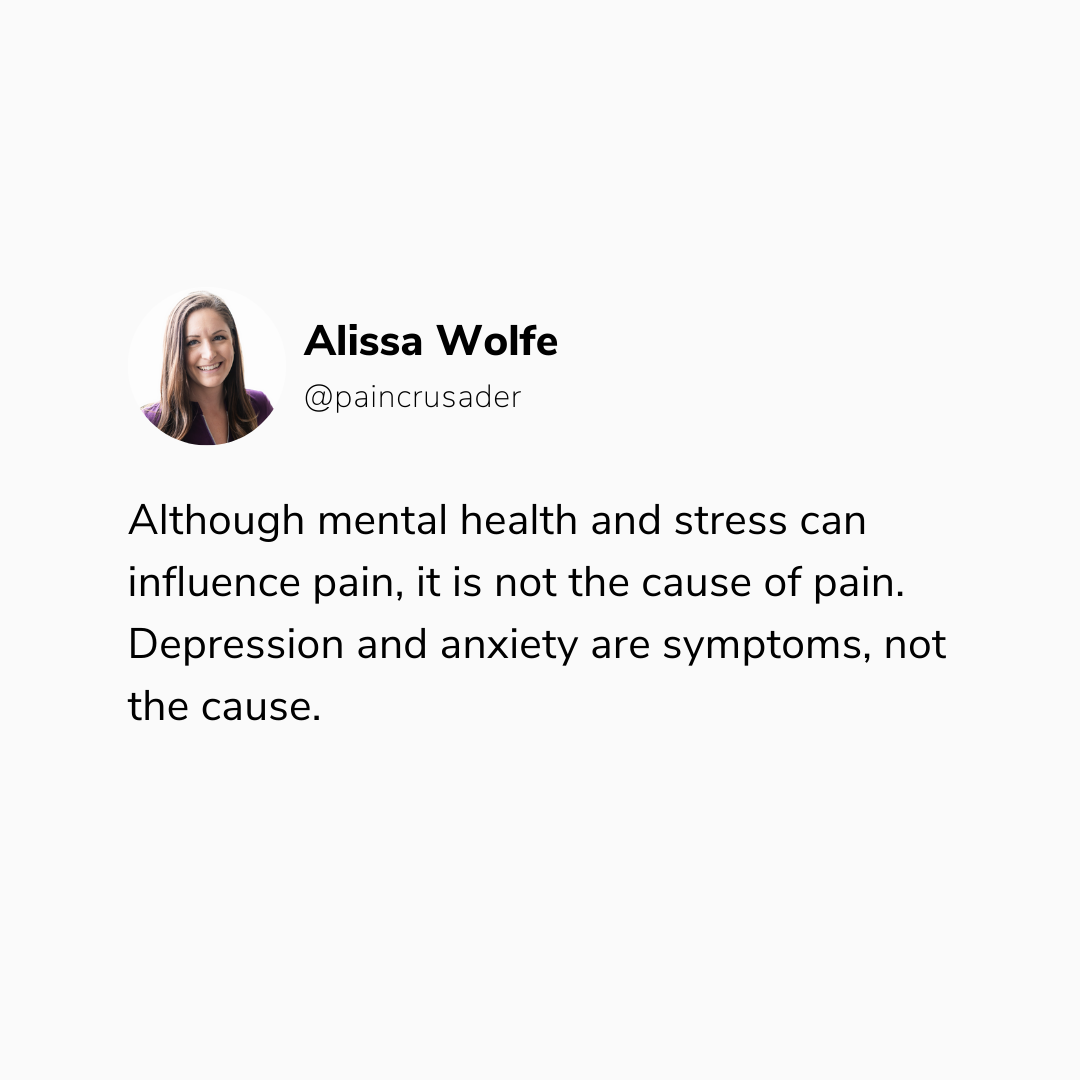
In fact, the opposite is true. Pain causes changes in brain activity and functional ability, which results in changes in mood, such as depression, anxiety, and irritability.
According to stuffthatworks.com, the top two most reported comorbidities of chronic pain are #1 depression and #2 anxiety. These findings are not surprising, considering the impact chronic pain has on one's social life.
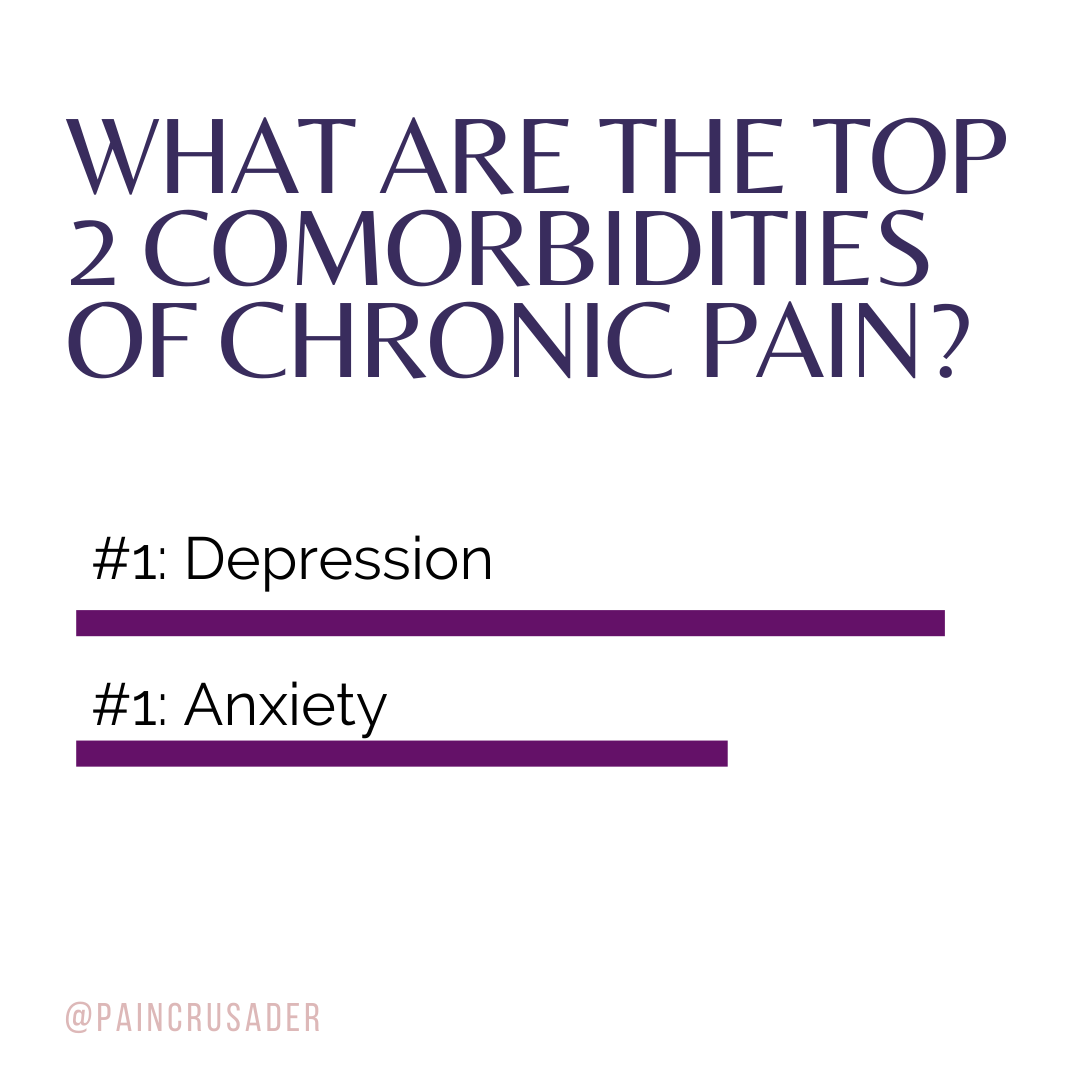
Chronic pain is isolating, physically and emotionally. When no one seems to understand your condition, it forces you to draw back and close yourself off. The constant gaslighting from medical professionals and even friends and family members is not only frustrating but demoralizing. That feeling of loneliness combined with the lack of support from the medical community leads to a feeling of hopelessness.
Additionally, from a neuroscience perspective, pain also affects mental health because of the changes that occur in the brain as a result of long term pain. The changes in brain activity result in mood swings, poor concentration and focus, difficulty problem solving, and irritability.
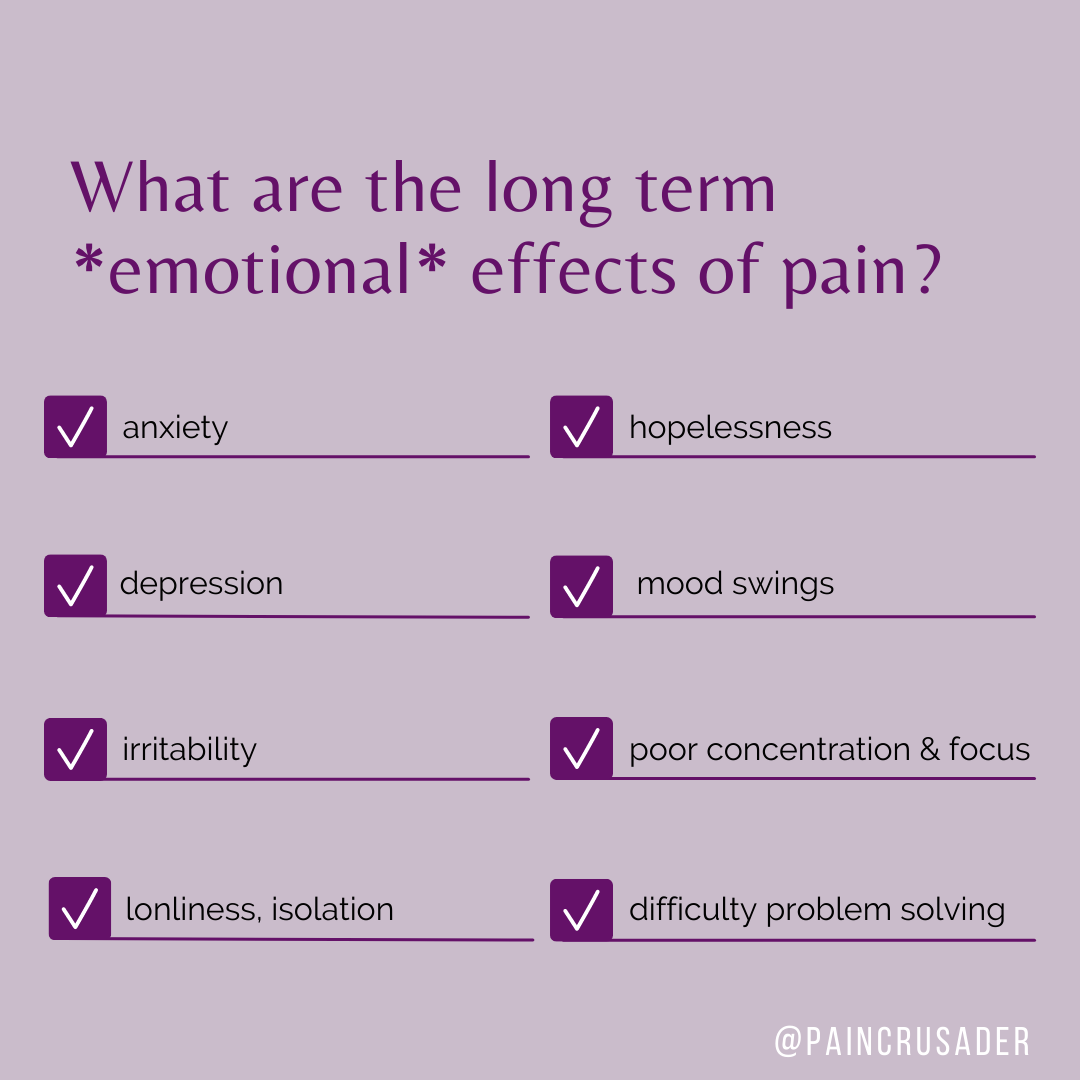
These changes don't just happen in the brain and don't just cause changes in mood and cognitive function, there are other changes as well...
Third, pain can cause changes in the nervous system.
Pain may start out initially after an injury or due to some kind of structural or mechanical forces on the body. But over time, those danger messages being sent from the tissues of the body can cause changes in the entire nervous system: we're talking peripheral nerves, spinal cord, and brain.
So what kinds of changes are we talking about and what effects do they have?
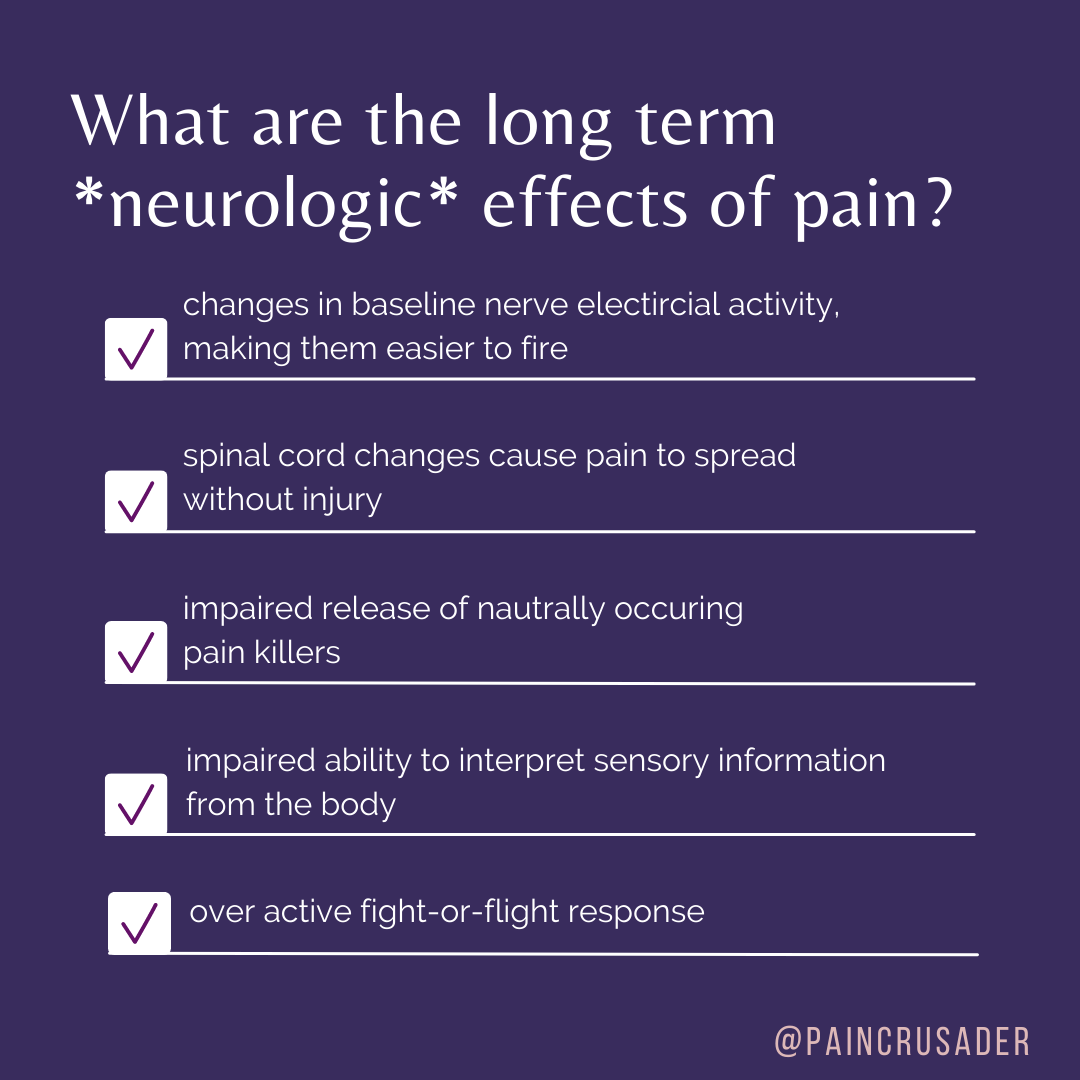
Here are some examples:
- The electrical activity in the peripheral nerves changes, making it easier for nerves to fire and send their danger message. This means that a smaller stimulus is needed to get the nerve to fire.
- Some of the changes in the spinal cord can cause pain to spread to nearby areas and even to the opposite side of the body without any injury at all.
- The brain's ability to release it's own naturally occurring pain killers becomes impaired or limited and instead the brain amplifies the danger messages it receives from the body. This makes the pain feel more intense without actually experiencing a larger or more severe injury.
- The structure of the sensory cortex of the brain changes making it harder for the brain to correctly interpret the messages it receives from the body. When this happens, the brain doesn't fully comprehend what is going on down below, so it assumes there is danger and moves into protect mode, by activating pain and the fight-or-flight response.
- Other brain and spinal cord changes cause the pain to feel more intense and can cause other unpleasant sensations to occur with non-threatening stimuli, such as crawling, burning, itching, cramping, numbness, and tingling.
- The over-activity of the fight-or-flight response can cause impaired immune system function, hormonal imbalances, digestion, reproductive functions, and memory.
Chronic pain can take a toll on your body, mind, emotions, and nervous system. However, there is good news. There are things you can do to address the changes that have occurred in your nervous system and retrain the nervous system to address those changes. With the right tools and strategies, it is possible to reduce chronic pain by retraining the nervous system and improve your quality of life.
To learn more about how to retrain your nervous system to reduce pain, check out my program, The Chronic Pain Breakup Method, designed to help you get in control of your pain using principles of neuroscience. Click here to learn more.
Get Pain Articles & Neuroscience Nuggets Sent To Your Inbox.
Subscribe to my Blog!






